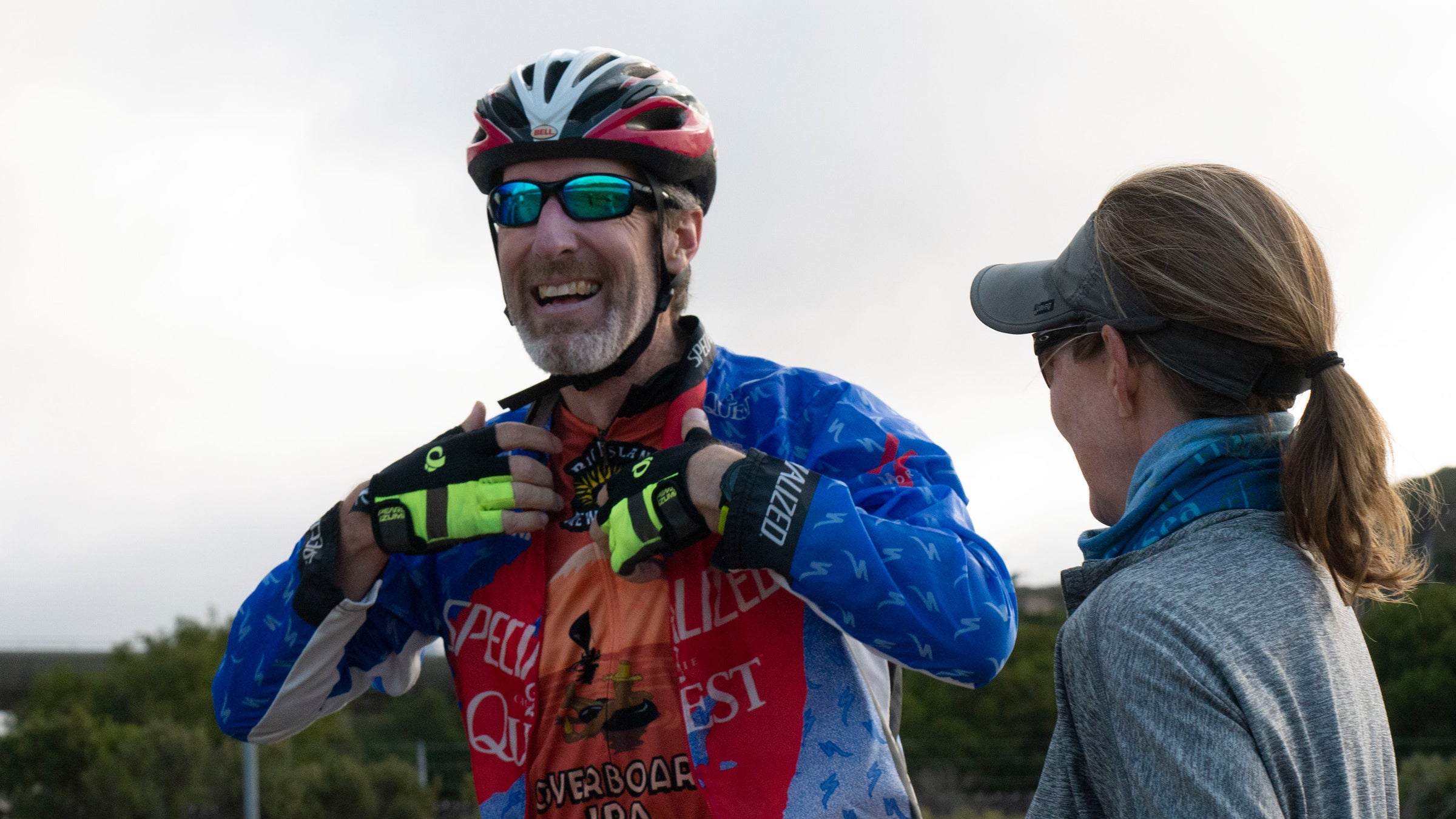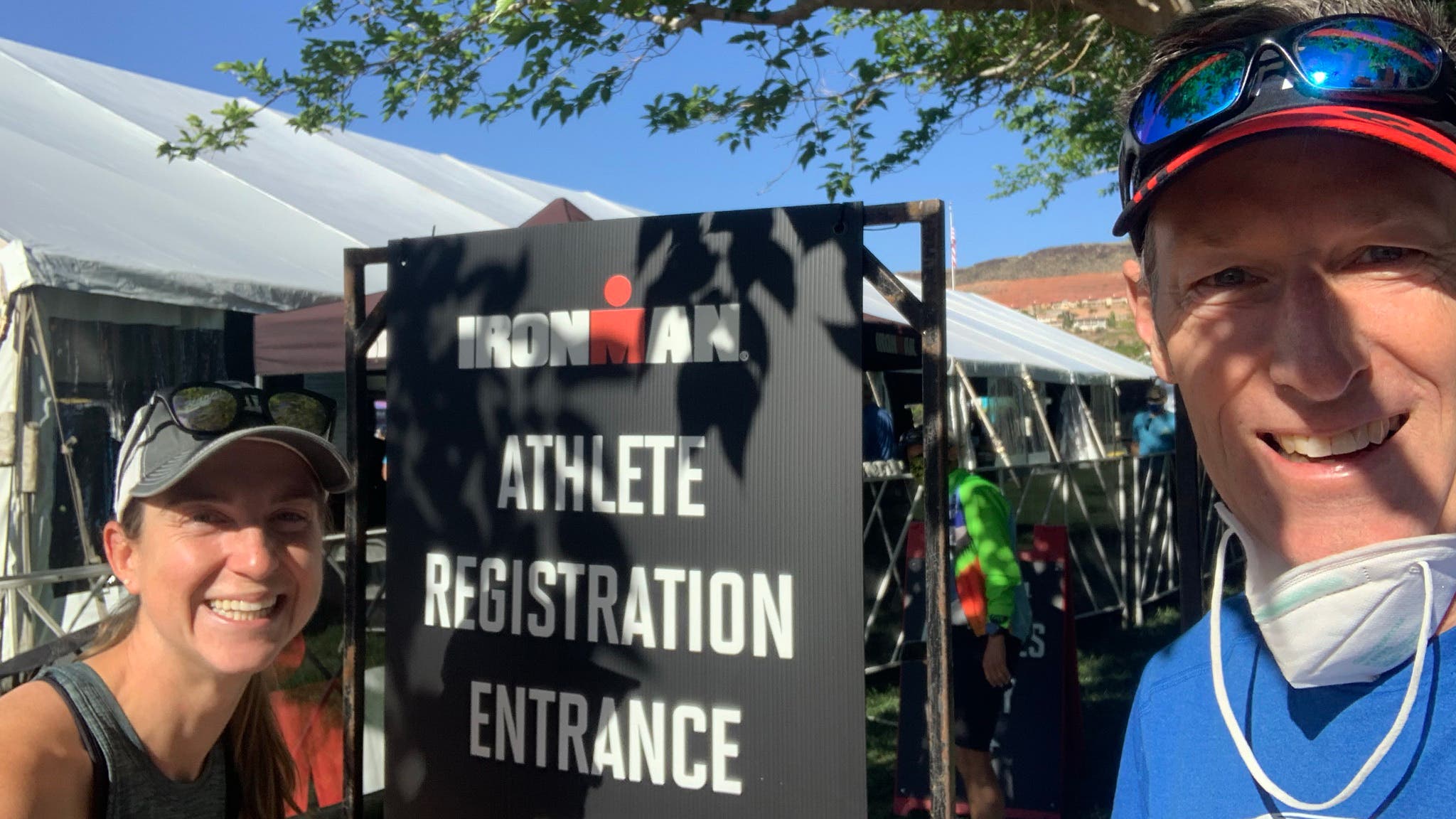Taking on Long-Course Triathlon With a Missing Lung

The first thing Keith Perry said after learning he had lung cancer was “Well, that’s it. I’m done.”
“It’s such a shock,” Perry recalled of getting the news. “It really turns your world upside-down.”
The triathlete got another shock when he went in for a surgical consult: In order to remove all of the cancer in his left lung, they would have to remove the entirety of the lung itself. Perry, who wanted to fight for the sake of his wife and two daughters, said that would be fine; he could give up his active lifestyle if it meant having more time with his family.
Perry was content with his decision, but couldn’t help but wince at reminders of his past life. While recovering from the lung-removal surgery, Perry turned on the television, which happened to be playing the broadcast for the 2018 Ironman World Championship. Without realizing it, he began to cry. Perry didn’t have any aspirations of qualifying for Kona (he describes himself as a “proud back-of-the-packer”), but he did have hopes of one day doing an Ironman.
“I had started triathlon back in 1998, and did shorter races. I had always wanted to do an Ironman, but I never thought it was a good time to go for it. There was always something more important to do,” recalled Perry. “I thought maybe when I turned 40 I’d do one; then it became maybe when I turn 50.”
It never occurred to Perry that one day, the possibility wouldn’t be there. He certainly didn’t imagine he’d ever have cancer, much less half of his lung capacity removed. In the weeks after the surgery, he hit his lowest point. The idea of doing anything with just one lung was too hard to imagine. While undergoing chemotherapy, he lost nearly 30 pounds and nearly all of his fitness.
“I figured my days of competitive sports of any kind were over,” Perry said. Instead, he focused on his rehabilitation. Each day, he’d take a short walk. At first, he could barely make it to the end of the street, but with the encouragement of his family, he eventually made it around the block. Gradually, he added more and more time on his feet, then eventually got back on his bike.
On the first anniversary of his surgery, Perry and his wife celebrated with a bike ride. On the ride, they saw a sign for Ironman 70.3 Santa Cruz, which was taking place in their community the following weekend.
“Maybe you should train for that,” his wife said jokingly. They laughed heartily and continued the ride. But a little part of Perry wondered: Could I? Should I?
“Over the next few days, the thought wouldn’t go away,” said Perry. “I decided that I wanted to give it a shot. Even if I couldn’t complete the course, it would be worth the effort to do the training and try.”
Perry signed up for the 2020 race, which was canceled due to the COVID pandemic. But the extra time to prepare for the rescheduled September 2021 race proved beneficial, and Perry soon felt confident enough to add another, earlier race to his calendar: Ironman 70.3 St. George, which took place on May 1, 2021.

“The absolute best part was just getting to the starting line,” Perry said of race day. “Getting to that transition on race day and being able to look around, see the sun coming up and the other racers, and feel that I earned this. I belong here. That meant that I had completed my training and I was in a much better place than when I started.”
Perry completed the challenging course in 9 hours and 37 minutes, and savored every second of it. “Don’t get me wrong – I’d love to be faster, but running on half the cylinders makes it a little more difficult,” explained Perry. “But it’s a gift, and it shouldn’t be wasted. When I was going through chemotherapy, there were times when I was just working hard to get through the day. In a way, the pain of the bike or the run is not that different. It’s a pain that is not going to go away, so you just have to find a place within yourself to park it and keep on going no matter what. Whether you are at the front of the pack or the back, we all have to go the same distance. Stopping is not an option. Giving up is not an option. You just have to keep going.”